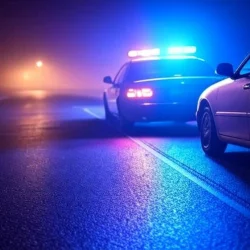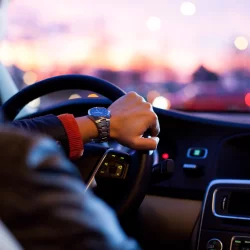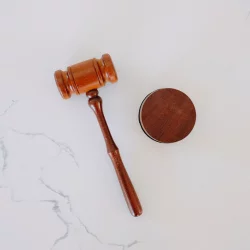Can I sue for slip and fall damages if I was intoxicated?
Slip and falls are a major cause of accidents with serious injuries. If you fall on someone else’s property due to their negligence, you are legally entitled to sue for damages. But what if you were intoxicated when you fell? As with so many other legal questions, the answer varies widely depending on which state you are in. Because of the complexities involved, once your medical needs are addressed, your next priority should be consulting with a personal injury attorney who has extensive knowledge of premises liability law.
An experienced slip and fall lawyer will listen carefully to the details of your accident to determine whether you have a viable case against a private individual, a company, or a government entity in the state in which your accident took place. Much will depend on how
your state recognizes shared liability. Although it is scientifically proven that alcohol [1] impairs judgment [2] affects vision and [3] worsens coordination, all courts recognize that inebriation and negligence can combine to contribute to a slip and fall accident.
How the Defendant’s Negligence Contributed to Your Slip and Fall
Property owners are legally responsible for maintaining their property so that it is safe for
others, and are held accountable for injuries that result from their negligence. This is known as premises liability. If your premises liability attorney files a lawsuit on your behalf, she or he will have to prove that the other party did not take reasonable care of the property, allowing it to present a hazard by, for example:
- Having slippery, highly waxed floors or an unreported spill
- Having a pathway uncleared of snow and ice
- Having a broken bannister
- Having a poorly lit parking lot with an unmarked pothole
However, even if your attorney is able to present photographic evidence of a defect like one of the above, the fact that you were intoxicated will affect the outcome of your case. Of course, the more savvy your attorney, the more successful you are likely to be during negotiations or in the courtroom. Making sure you have forceful legal representation will give you the best chance of winning maximum damages in spite of your intoxication at the time of the accident.
Different Laws for Different States
All states recognize the concept of shared liability, but state laws concerning how justice is meted out in such cases deviate from one another to a remarkable degree. All states accept the premise that the injured party’s awarded damages should be lessened by the percentage of his/her responsibility for the accident, a percentage determined by the court. Most states adhere to one of the two following types of comparative negligence; some few follow the principle of contributory negligence.
Pure Comparative Negligence allows accident victims to receive damages for medical costs, lost income, and pain and suffering as long as the other party was negligent, even if the plaintiff’s percentage of fault is higher than the defendant's. This means that, in almost a third of the states, including New York, Florida, and California, even if the court finds that your drunkenness made you 70 percent responsible for your slip and fall, you can still receive 30 percent of court-awarded damages.
Modified Comparative Negligence, on the other hand which is the model for premises liability cases in 33 states, limits the victim’s damages much more stringently. In modified comparative negligence states, the victim is only allowed to recover damages if she/he is less at fault than the defendant. In some states, like Colorado and Georgia, the victim must be deemed less than 50 percent at fault. In others, such as Illinois, Massachusetts, Michigan, and Ohio, the victim can recover damages if his or her fault is 50 percent or less. While that 1 percent difference may seem insignificant, in substantial settlements it may amount to tens of thousands of dollars.
Contributory Negligence
If you are intoxicated when you slip and fall in Alabama, Maryland, North Carolina, Virginia, or Washington, D.C., you may be in for a rude awakening since these few states still work under the rule of contributory negligence. According to this system, if you tested positive for alcohol intoxication at the time of the accident, you will most likely be deemed partly responsible for your own injury and will be unable to collect any damages. Still, however dim your chances seem, it is always essential to consult with a slip and fall attorney to clarify your options.
When Vendors or Parents May Be Held Responsible Another’s Intoxication
According to The Dram Shop Act, a law in 38 states, a bar, restaurant or liquor store that sells alcohol to a person who is obviously inebriated or visually impaired is breaking the law. Thus, if you are noticeably drunk, get served whiskey in a bar and then slip on a spill on the barroom floor, the vendor may be legally at fault for serving you, as well as for not cleaning up the spill.
An even more complicated situation arises when a minor is served liquor in someone’s home. The courts have held that when a teenager is served alcohol illegally, the host can be prosecuted.
A Skilled Slip and Fall Attorney Provides the Very Best Chance of Recovering Damages
When you are overwhelmed by physical pain, high medical bills, lost income, and anxiety, the practical thing to do is engage the services of a competent, compassionate attorney. When you are dealing with the added complication of your intoxication, it is imperative to have a true professional to navigate the legal channels that will hopefully lead to justice.
More to Read:
Previous Posts:



